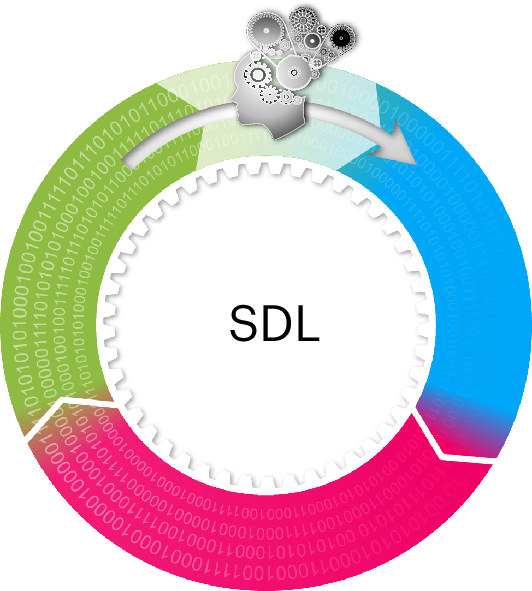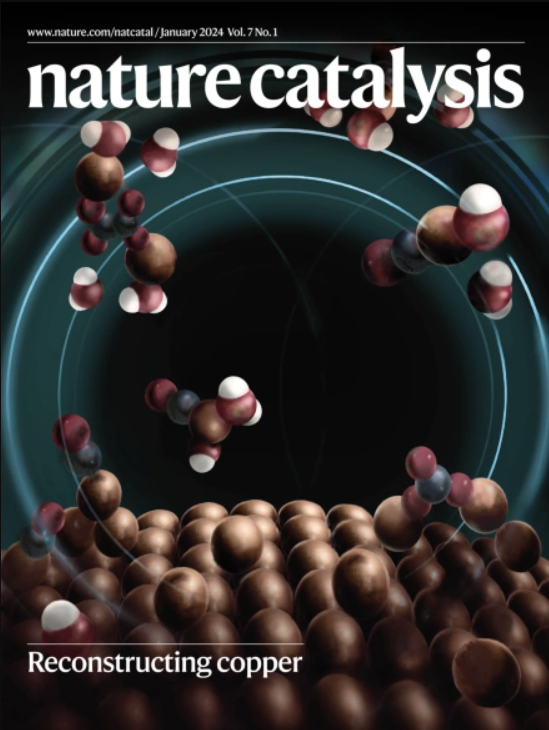Role of the human-in-the-loop in emerging self-driving laboratories for heterogeneous catalysis
IF 42.8
1区 化学
Q1 CHEMISTRY, PHYSICAL
引用次数: 0
Abstract
Self-driving laboratories (SDLs) represent a cutting-edge convergence of machine learning with laboratory automation. SDLs operate in active learning loops, in which a machine learning algorithm plans experiments that are subsequently executed by increasingly automated (robotic) modules. Here we present our view on emerging SDLs for accelerated discovery and process optimization in heterogeneous catalysis. We argue against the paradigm of full automation and the goal of keeping the human out of the loop. Based on analysis of the involved workflows, we instead conclude that crucial advances will come from establishing fast proxy experiments and re-engineering existing apparatuses and measurement protocols. Industrially relevant use cases will also require humans to be kept in the loop for continuous decision-making. In turn, active learning algorithms will have to be advanced that can flexibly deal with corresponding adaptations of the design space and varying information content and noise in the acquired data. Uses of machine learning and automation are increasing and these techniques are becoming popular in catalysis research. This Perspective discusses how active learning workflows and human intervention should be optimized to ensure the most efficient progress for emerging self-driving laboratories performing heterogeneous catalysis research.


人在环在新兴的多相催化自动驾驶实验室中的作用
自动驾驶实验室(sdl)代表了机器学习与实验室自动化的前沿融合。sdl在主动学习循环中运行,其中机器学习算法计划随后由越来越自动化(机器人)模块执行的实验。在这里,我们提出了我们的观点,新兴的SDLs加速发现和多相催化过程优化。我们反对完全自动化的范例和将人类排除在循环之外的目标。基于对所涉及的工作流程的分析,我们得出结论,关键的进步将来自建立快速代理实验和重新设计现有设备和测量协议。工业上相关的用例也将需要人类保持在循环中以进行持续的决策。反过来,主动学习算法必须能够灵活地处理设计空间的相应适应以及所获取数据中变化的信息内容和噪声。
本文章由计算机程序翻译,如有差异,请以英文原文为准。
求助全文
约1分钟内获得全文
求助全文
来源期刊

Nature Catalysis
Chemical Engineering-Bioengineering
CiteScore
52.10
自引率
1.10%
发文量
140
期刊介绍:
Nature Catalysis serves as a platform for researchers across chemistry and related fields, focusing on homogeneous catalysis, heterogeneous catalysis, and biocatalysts, encompassing both fundamental and applied studies. With a particular emphasis on advancing sustainable industries and processes, the journal provides comprehensive coverage of catalysis research, appealing to scientists, engineers, and researchers in academia and industry.
Maintaining the high standards of the Nature brand, Nature Catalysis boasts a dedicated team of professional editors, rigorous peer-review processes, and swift publication times, ensuring editorial independence and quality. The journal publishes work spanning heterogeneous catalysis, homogeneous catalysis, and biocatalysis, covering areas such as catalytic synthesis, mechanisms, characterization, computational studies, nanoparticle catalysis, electrocatalysis, photocatalysis, environmental catalysis, asymmetric catalysis, and various forms of organocatalysis.
 求助内容:
求助内容: 应助结果提醒方式:
应助结果提醒方式:


